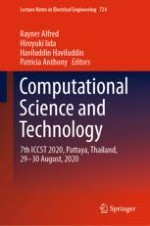2021 | OriginalPaper | Chapter
The Programming Learning Assessment Model for Measuring Student Performance
Authors : Swee-Ling Chean, Sin-Ban Ho, Ian Chai, Chuie-Hong Tan, Sek-Kit Teh, Nur Azyyati Ahmad
Published in: Computational Science and Technology
Publisher: Springer Singapore
Activate our intelligent search to find suitable subject content or patents.
Select sections of text to find matching patents with Artificial Intelligence. powered by
Select sections of text to find additional relevant content using AI-assisted search. powered by
